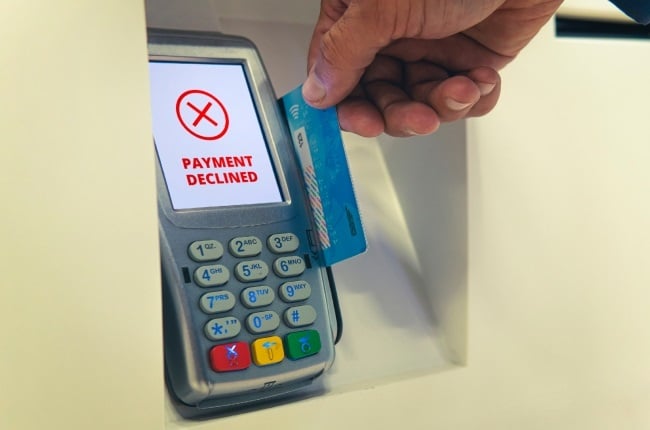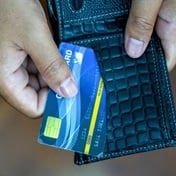
If Friday is the day to which we most look forward each week, then a pay day Friday is like experiencing five Fridays all at once.
So many bills to be paid, so many social engagements to attend – your cellphone's beeping as payment notifications go through sounds like a jukebox. It's a vibe.
And you haven't a care in the world until you notice you can’t use your account to transact, you can't buy items or pay bills, you can’t even withdraw any money, and scheduled payments are bouncing.
You're blocked.
While it sometimes happens without your awareness, the Financial Sector Conduct Authority requires banks to provide reasonable notice and give a reason for blocking an account.
Once your bank account has been “frozen” or blocked, it may take a while for you to unblock it.
“In most cases, you can contact your bank and they will tell you what to do to regain access,” says Shafeeka Anthony of money advice website JustMoney.
“Unblocking your account can be achieved relatively quickly in most cases, depending on the reason, and provided you meet certain conditions. However, if your case involves considerable debt or bankruptcy, it becomes more complex.”
- WILL I BE NOTIFIED BEFORE MY ACCOUNTS IS FROZEN?
The Ombudsman for Banking Services says that a reasonable period is one to two months for individual accounts, and two to three months for business accounts, depending on the circumstances.
However, this doesn’t apply if a bank is legally required to freeze an account, or if the account is being used for illegal purposes.
Read more | Who’ll be executor of your estate when you’re dead? Here’s the good and bad of picking pals over pro
- WHY DOES THE BANK BLOCK YOUR ACCOUNT?
If a bank suspects fraud or illegal activity, it may temporarily block access to the account and ask you to confirm certain details.
A bank may freeze an account for several reasons – including if:
• You haven’t used your account for some time, and the bank has been unable to contact you using the last contact details you provided.
• Your account isn’t verified under the Financial Intelligence Centre Act (FICA). The bank usually verifies your identity and particulars before you open an account, so this is rarely an issue. However, if your information isn’t up to date, and the bank can’t get hold of you, your account may be blocked.
• Suspicious activity on your account leads the bank to believe you may be involved in illegal acts, such as fraud or money laundering. The bank would need to obtain compelling evidence before blocking your account, however.
• A court order requires the bank to freeze your account. This may happen, for example, if a creditor has been granted a judgment against you.
• You’ve been declared insolvent or your estate is sequestrated.
• You pass away. Bank accounts are always frozen in the event of death, even if power of attorney has been granted to a surviving person. In South African law, powers of attorney are unenduring, meaning that if the grantor dies, they fall away.
Read more | 5 savings myths busted for millennials and Gen Z as South Africans urged to be more thrifty
- THE CONSEQUENCES OF A BLOCKED BANK ACCOUNT
“Missed payments can also affect your credit score, which banks, leasing agents and other entities check, to see if you are eligible for a loan. A credit score also determines the interest rate you’ll be charged,” says Shafeeka.
“You’ll certainly want to resolve the situation as soon as possible.”
- WHAT OPTIONS ARE AVAILABLE TO ME?
She provides details of what to do in specific cases of “frozen” accounts:
- Lack of use
Your bank will first attempt to contact you, however, if no response is received, your account will be closed, and the funds transferred to a suspense account or “unclaimed balances” account.
SOLUTION: You’ll have to provide the bank with sufficient details to identify yourself and your account to claim the funds.
- A court order
SOLUTION: You’ll need to have the judgment against you rescinded or set aside, or have it replaced by another court order that allows you to access your account.
You can do this by working out a repayment plan with your creditor or allowing the creditor to take a portion of your salary or wages in payment of the debt, via an emoluments attachment order.
In some cases, creditors will attach a portion of the funds in your account through a garnishee order, which the sheriff of the court will administer, and pay to your creditor.
- A deceased breadwinner
Accounts are frozen until the estate's financial affairs are settled, which can be difficult for relatives dealing with a traumatic loss, funeral costs, and no immediate income.
SOLUTION: Taking out life cover, with an immediate needs benefit, can prevent such a dire financial situation.



















